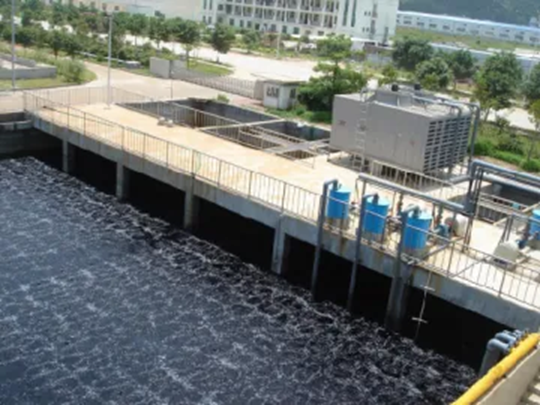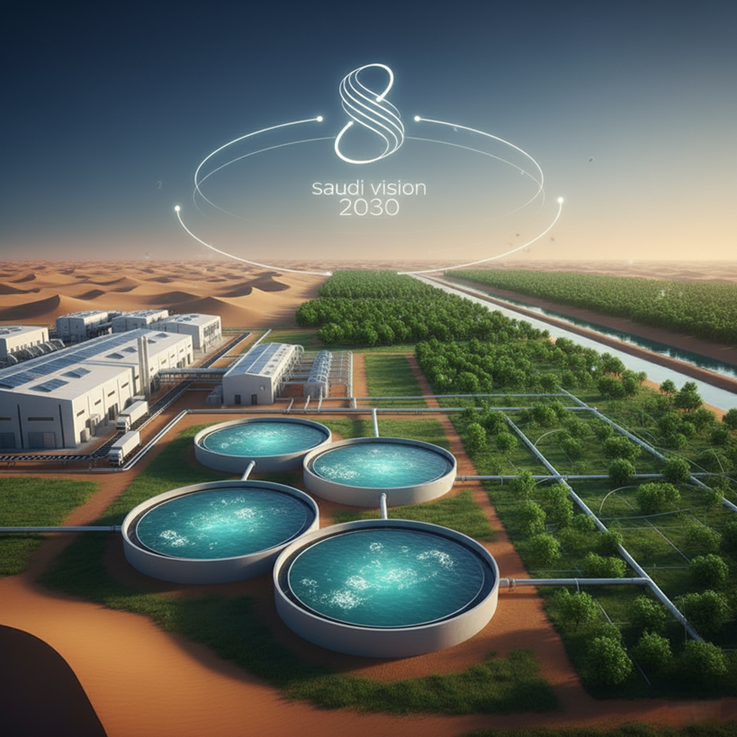
Advantages of Advanced Biological Systems
Advanced biological wastewater treatment systems offer a range of advantages that enhance their effectiveness and sustainability compared to conventional methods. These advantages can be broadly categorized as improved energy efficiency, cost savings, and enhanced treatment capacities.
Higher Energy Efficiency
One of the key advantages of advanced biological systems is their ability to achieve higher energy efficiency. Conventional wastewater treatment methods often require significant energy consumption, resulting in high operating costs and negative environmental impacts. In contrast, advanced biological technologies are designed to reduce energy consumption while maintaining high treatment efficiency. For example, integrating mobile conveyors into biological systems allows for intensified processes without the need for major infrastructure modifications, reducing energy consumption and extending the life of treatment systems by effectively handling increased pollutant loads.
Lower Operating Costs
Optimizing biological processes through innovative technologies, such as dissolved air flotation (DAF) systems, can result in significant savings in operating costs. These advanced systems are equipped to manage variations in wastewater composition, preventing subsequent biological processes from becoming overburdened and reducing the need for expensive chemical interventions. As a result, facilities using these technologies can significantly improve their treatment efficiency while ensuring compliance with stringent environmental regulations.
Integrated Treatment Solutions
Advanced biological systems often utilize integrated treatment solutions that combine multiple technologies tailored to specific applications. For example, combining DAF, moving-bed biofilm reactor (MBBR), sequencing batch reactor (SBR), and sludge drying technologies can produce high-quality wastewater. This comprehensive approach not only enhances treatment efficiency but also supports sustainability goals by reducing chemical use and lowering energy consumption.
Enhanced Treatment Stability
Fixed-film biological treatment technologies, such as MBBR and integrated fixed-film activated sludge (IFAS), contribute to enhanced treatment stability. These systems support high biomass concentrations, significantly improving their ability to cope with fluctuating organic loads. This capability is particularly important in industries such as oil and gas, where wastewater compositions can be complex and variable.
Resource Recovery and Waste-to-Energy Potential
Advanced biological systems also facilitate resource recovery and waste-to-energy initiatives. Modern treatment plants are increasingly designed to recover valuable resources such as fertilizer nutrients and rare metals from wastewater, which can be exploited. Additionally, some facilities capture the methane gas produced during the treatment process, allowing for on-site electricity generation. This not only enhances energy efficiency but also contributes to a more circular approach to wastewater management.
Environmental Regulation Compliance
As the regulatory landscape continues to evolve, the adoption of advanced biological technologies has become essential for manufacturers to meet stringent environmental standards. By enhancing operational efficiency and ensuring compliance, these technologies enable industries to navigate complex regulatory frameworks while pursuing long-term sustainability goals.
Read also: Why Choose MBBR Technology to Improve Wastewater Treatment?
Challenges and Limitations
The implementation of advanced biological wastewater treatment systems faces numerous challenges and limitations that can impact their efficiency and effectiveness.
Capacity Building Needs
A key challenge for public utilities is the need to build adequate capacity. Many small, resource-poor utilities face initial capacity constraints, which can hinder their ability to develop and implement effective proposals for advanced systems. Technical assistance can play a critical role in addressing these constraints, enabling utilities to build the necessary capacity and improve their operational effectiveness.
Financial Constraints
Financial resources remain a significant barrier to the adoption of innovative wastewater treatment technologies. While funding can be obtained through rate increases or partnerships, additional support from state and federal governments is often necessary. This investment is essential to building the capacity of utilities and regulators, particularly given the potential benefits that successful innovations can bring at the project and national levels.
Regulatory Relationships
The relationship between regulators and utilities is critical to facilitating innovation in wastewater treatment. Effective regulatory relationships can foster collaboration and trust, which are vital for problem-solving and adaptive management. However, there is often a lack of understanding of the factors that contribute to effective regulatory interactions, particularly in the context of innovation. Studies have focused primarily on enforcement approaches rather than the collaborative dynamics that can support technological progress.
Monitoring and Compliance Requirements
Monitoring requirements also pose a challenge, as they can create barriers to the implementation of new technologies. If these requirements are overly stringent, they can limit utilities’ ability to adapt and learn from pilot projects. Therefore, a more flexible approach to monitoring, allowing for tailored compliance based on the specific risks and benefits of the project, is essential to foster innovation.
The Need for Adaptive Management
Adaptive management is critical in addressing the uncertainties associated with the implementation of new technologies. Utilities must be prepared for unexpected outcomes and have the ability to make frequent adjustments based on feedback from regulators and stakeholders. This requires a shift from traditional practices to more dynamic, learning-oriented frameworks capable of addressing evolving challenges.
Technical Challenges
Technical challenges, such as inadequate training, complex sludge management, and the large footprint of advanced systems, increase the complexity of their implementation. These issues require targeted training programs and technical support to ensure that employees are qualified to operate and maintain these sophisticated systems effectively.
Recent Innovations and Developments
The wastewater treatment landscape has been radically transformed by recent innovations and developments aimed at promoting sustainability and resource recovery. A key aspect of this evolution is the implementation of a circular economy approach, where materials previously discarded are revalued as essential resources. This paradigm shift not only reduces waste but also reduces reliance on raw materials, resulting in significant cost savings for companies while benefiting the environment.
Technological Innovations
Recent technological developments have led to a range of environmentally friendly solutions for water management. Technologies such as advanced oxidation processes (AOPs) have emerged as effective methods for breaking down pollutants into harmless byproducts, revolutionizing wastewater treatment.
In addition, innovations in filtration and electrochemical processes enable the recovery of valuable metals from wastewater, transforming water systems into treasure troves of resources rather than mere waste streams.
Regulatory Flexibility and Collaboration
The successful implementation of innovative technologies often depends on a regulatory framework and effective stakeholder collaboration. Case studies, such as the Tres Ríos Wetlands Project and the Sustainable Water for Tomorrow (SWIFT) Initiative. Illustrate the importance of collaborating with regulators early in project development. These initiatives have demonstrated that ongoing communication and phased project implementation can build trust and clarity between utilities, regulators, and the community, ultimately leading to more effective wastewater management solutions.
Wastewater Reuse and Resource Recovery
Wastewater reuse efforts have gained increasing momentum. With systems designed to transform waste into valuable resources, advanced treatment plants utilize multiple purification steps to recycle water for various uses, including irrigation and industrial processes. This not only preserves freshwater supplies but also reduces pressure on existing water resources.
Furthermore, waste-to-energy systems, which convert wastewater into energy, highlight the potential for treatment plants to become energy-neutral, reducing dependence on fossil fuels and lowering operating costs.
Real-Time and Decentralized Monitoring
Innovations in real-time monitoring technologies have revolutionized the management of wastewater systems. Using the Internet of Things and digital sensors, operators can receive continuous data on water quality and flow rates, enabling rapid responses to changes in the characteristics of incoming wastewater. This rapid response capability reduces the risk of environmental damage and enhances public health monitoring capabilities. such as in cities that track disease outbreaks through wastewater analysis.
Furthermore, the proliferation of decentralized wastewater systems offers an alternative approach, where wastewater is treated closer to its source. This model serves small communities and reduces the burden on centralized treatment facilities, fostering a more flexible and sustainable framework for wastewater management.
An important article explains The role of advanced biological treatment systems in supporting food security within Vision 2030.

























